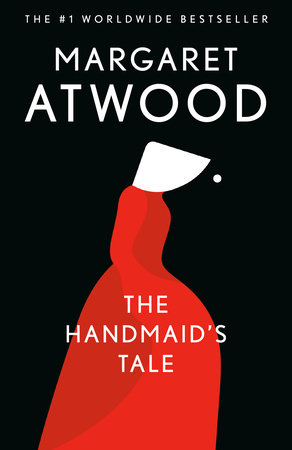Reading Group Center
- Home •
- Books by Category •
- Imprints •
- News •
- Videos •
- Media Center •
- Reading Group Center
The Handmaid's Tale (Movie Tie-in)
By Margaret Atwood
1. Atwood says that her novel’s title was meant to evoke both Chaucer’s Canterbury Tales and folktales or fairy tales. Why might she have wanted readers to make those connections?
2. The novel’s first epigraph, from Genesis, reveals the Biblical precedent that Gilead’s founders use to justify exploiting Handmaids. Given their apparent allegiance to the Bible, why do Gilead’s rulers keep it under lock and key?
3. The novel’s second epigraph is from Jonathan Swift’s famously satirical “Modest Proposal,” in which he suggests solving the Irish famine by having the starving peasants sell their children as food for the rich. Beyond signaling her satiric intent, do you think Atwood meant to suggest any deeper connections between Swift’s vision and hers? Does humor have any role in her satire?
4. The third epigraph is a Sufi proverb: “In the desert there is no sign that says, Thou shalt not eat stones.” What do you think this means in the context of this story?
5. Offred’s name vividly represents the erasure of her former identity and of her independent selfhood. Readers have found other evocative echoes in it: “offered,” “afraid,” “off-read.” Do these associations deepen your sense of her character?
6. Why do you think the Aunts participate so enthusiastically in the oppression of their fellow women? Are their motives different from those of the Commanders’ Wives?
7. Serena Joy was instrumental in bringing about the new social order, which now severely limits her role. Does she seem to feel that the trade-offs she has made were worth it?
8. Atwood was concerned that readers might find Gilead’s horrors implausible, so she only included events that had actually occurred at some point in history. She lists examples in her introduction; can you think of more? Does knowing this make it seem more likely that something like Gilead could happen here?
9. In her introduction, Atwood argues that her novel is not “anti-religion,” but only “against the use of religion as a front for tyranny.” Is her argument persuasive to you? Is it as relevant now as when she wrote the novel?
10. Do you think the growing popularity of dystopian novels in recent years reflects increased pessimism about the future? Atwood has denied that The Handmaid’s Tale was meant as a prediction, explaining her intention as “anti-prediction,” meaning that “if this future can be described in detail, perhaps it won’t happen.” Do you think that might be (as she also suggests) wishful thinking?


